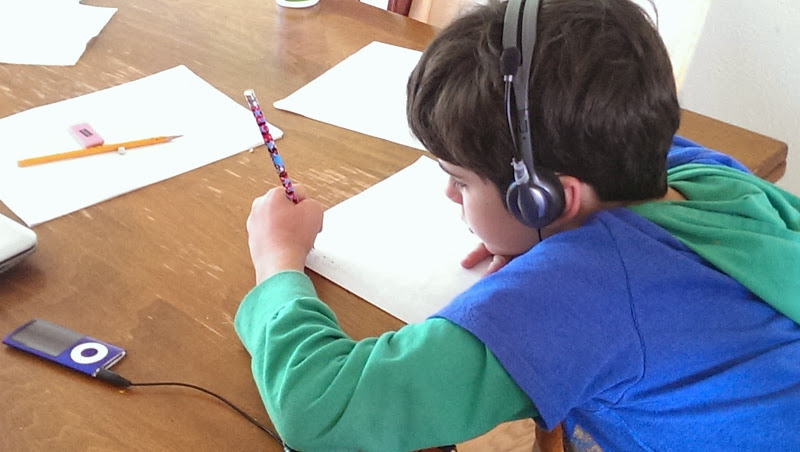When I began this little project of getting more organized, more intentional, and more disciplined in my homeschooling vocation, one of the things that concerned me was how this would interplay with the freedom I have as a homeschooler to do the fun stuff. In the past, we have spent a lot of time going on field trips, and the fall, in particular, is a time when I like to literally “head for the hills” with my children to soak in the glory that is October in Colorado.
But this year we have a schedule. And not just a schedule. We have a Classical Conversations co-op. With assignments. And teachers. And due dates.
And it’s a lot.
A couple of weeks ago I had a slight breakdown about the new character of our homeschool. It’s harvest festival time, and every year for the last four years we have gone to the farm with friends to harvest a car load of vegetables, ride on tractors, climb into broken old cars and fire trucks and amusement park rides, and slide down an enormous dirt hill on Tonka trucks. (If you are in Colorado and you haven’t been to the Miller Farms harvest festival, you are missing out. Go.)
As I cried to my husband about how we don’t have time to do the fun stuff anymore and it’s not fair to my littler ones and maybe this whole thing isn’t working out after all, he looked at me and said, “You know, going to the farm is just as important to their education as the book work you’re doing.” And he’s right. And I know he’s right. And that’s my dilemma. Because we still have a Classical Conversations co-op. With assignments. And teachers. And due dates.
But I decided to rage against the machine and get the gang together for a trip to the farm. We picked our day (yesterday) and as I put it on the calendar I realized that I have another big field trip scheduled this week. On Wednesday we’re going to a glorious Colorado nature park to have a park ranger teach us about bugs and the riparian eco-system.
No trouble, I thought. We’ll work ahead this weekend to get the co-op assignments ready. It will be fine. But Saturday we went to the Harvest Festival at the historic park near our house. (No actual harvesting happens here, but there are stagecoach rides. And apple cider doughnuts. I go for the doughnuts.) Saturday afternoon Helen and I went to see the Midsummer Night’s Dream ballet with my lovely and generous sister-in-law and my niece.
Sunday morning was church and hanging out afterwards with friends. Sunday afternoon was taken up with “daddy time” for each of the kids. (Our lives are not usually this jam-packed with fun stuff, it’s just a good week!)
So here it is Tuesday morning and we have basically one day to do all of the assignments we normally spread out over 5 or 6 days.
And I just don’t know if it’s going to happen. And I don’t know what I’m going to do if it doesn’t.
The consequences won’t be dire. Henry won’t get his stickers toward his end of the year prize. He won’t have a stellar presentation for class. He may not have a final draft (or even a rough draft, honestly) to share in his writing class and won’t receive tickets for the end of the year carnival.
I’m stuck with this internal struggle to conform to someone else’s standard. I feel resentful of having my child manipulated by peer pressure and token systems. I feel torn between appreciating the structure and accountability this co-op offers as I endeavor to improve the academic part of our homeschool, and resenting the loss of freedom to take things at our own pace.
I don’t know how this all will shake out. When I figure it out, I’ll let you know.


